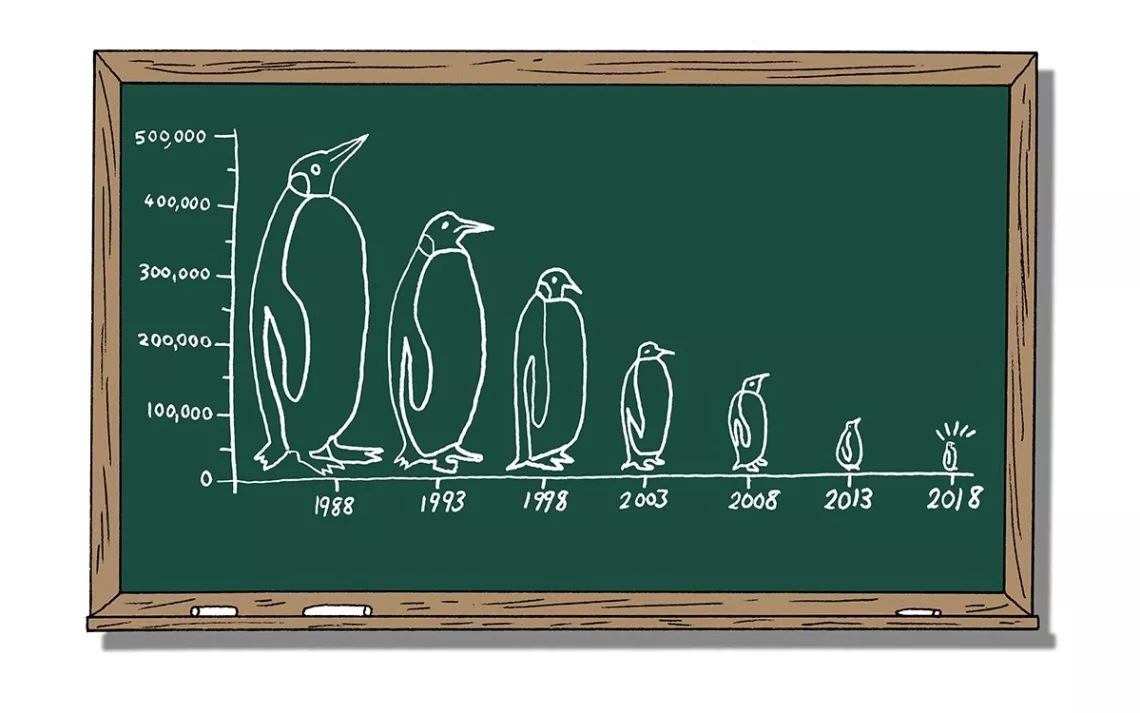ICYMI: Disappearing Penguins, Sharknapping, Bigger Spiders, & More
A weekly roundup for busy people

Illustration by Peter Arkle
The world’s largest colony of king penguins in Antarctica has declined by 90 percent over the last 30 years.
The Trump administration proposes rolling back federal pollution standards for cars and trucks and taking away California’s ability to enforce its own, stricter rules. Attorneys general from 19 states and the District of Columbia will challenge the move.
California recalls 500,000 heavy-duty trucks with engines by Cummins Inc.—including the Dodge Ram—for excessive pollution.
Uber gives up on developing a self-driving truck.
July in Death Valley is the hottest month ever recorded on Earth, with an average temperature of 108°F. In Mexicali, Mexico, seven people die of heat stroke as the temperature hits 122°.
Newly elected Mexican president Andrés Manuel López Obrador vows to end fracking.
Hackers sponsored by Russia are attempting to gain the ability to disrupt the U.S. electrical grid.
Texas regulators reject the $4.5 billion, 2,000-megawatt Windcatcher wind farm, which would have been the nation’s largest.
Visitors to Zion National Park in Utah are asked to report coughing bighorn sheep.
Gloucestershire’s Forest Green Rovers becomes the first professional soccer team to be certified carbon-neutral. The Rovers also claims to be the world’s first vegan team.
Thieves steal a shark from the San Antonio Aquarium by hiding it in a baby stroller.
The temperature in Banak, Norway, 350 miles above the Arctic Circle, hits 90°.
North Atlantic waters are too warm to cool nuclear plants in Norway and Finland, leading some to be curtailed or shut down.
Warmer temperatures in the Arctic are making wolf spiders larger and more numerous.
The U.S. Fish and Wildlife Service grants endangered status to five species of tarantula in Sri Lanka.
A grieving mother orca in Puget Sound has been keeping the body of her dead calf afloat for more than a week.
Worms from the Pleistocene that had been frozen in Siberia’s permafrost for 42,000 years are brought back to life.
 The Magazine of The Sierra Club
The Magazine of The Sierra Club



